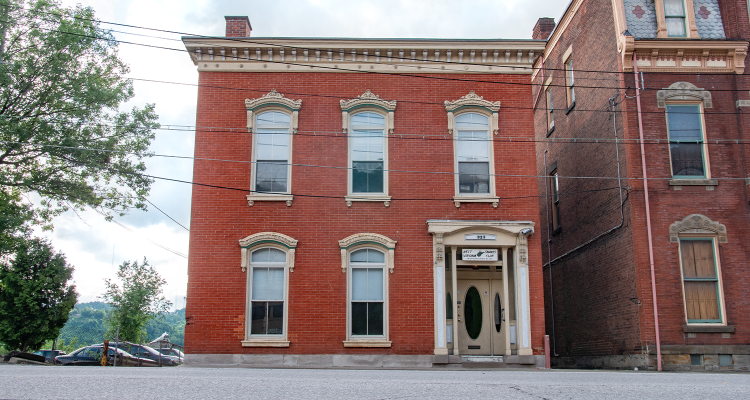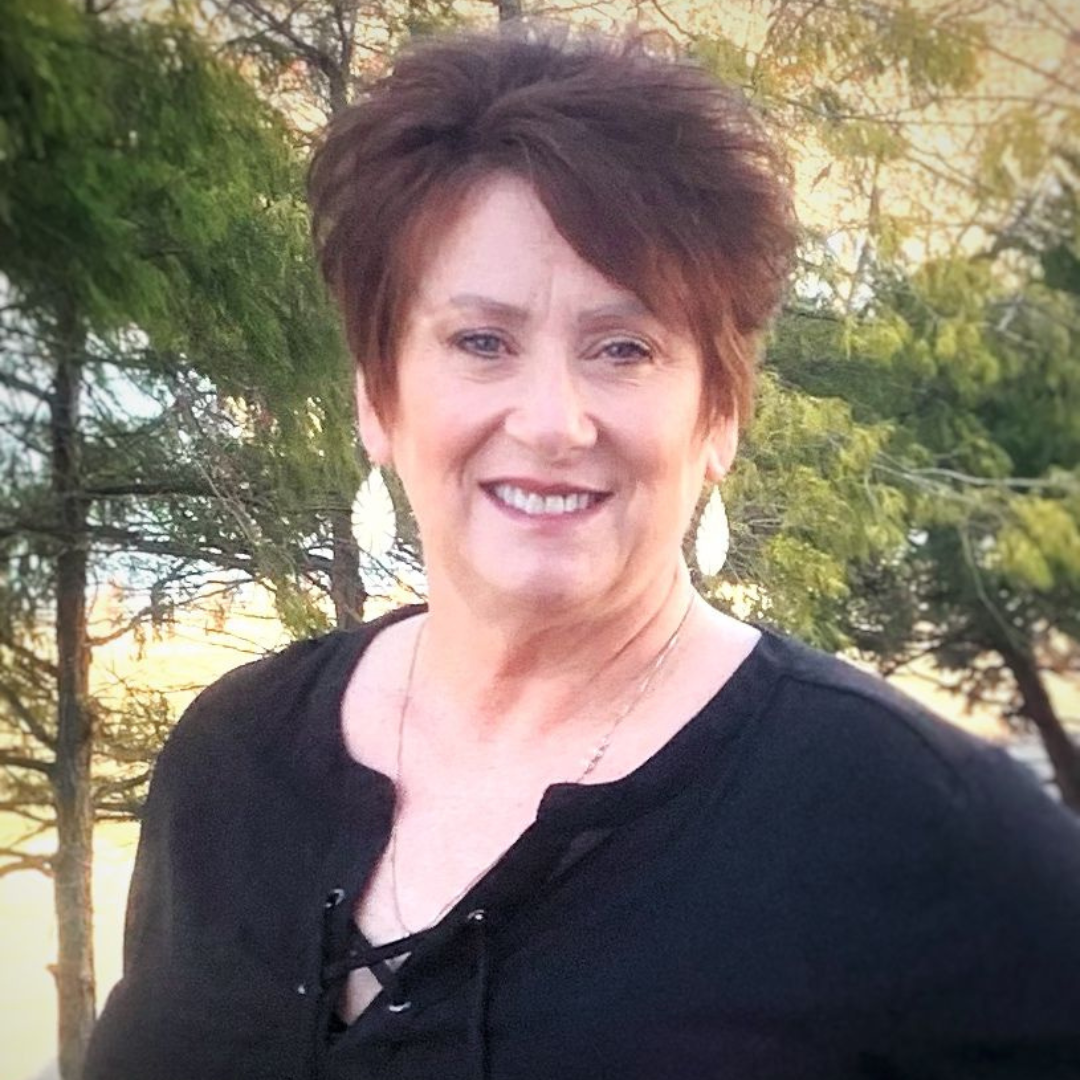First of all, where in the world did the name “West Virginia Snakes Club” come from? And is “Snake” singular or plural? Although most people today refer to it as the Snake Club, the sign on the building at 923 Main St. clearly says “Snakes.” So technically, it’s plural.
If you’ve ever come off the Fort Henry Bridge ramp and noticed that sign on the residential-looking red brick structure, you may have wondered just what lies behind that locked front door.
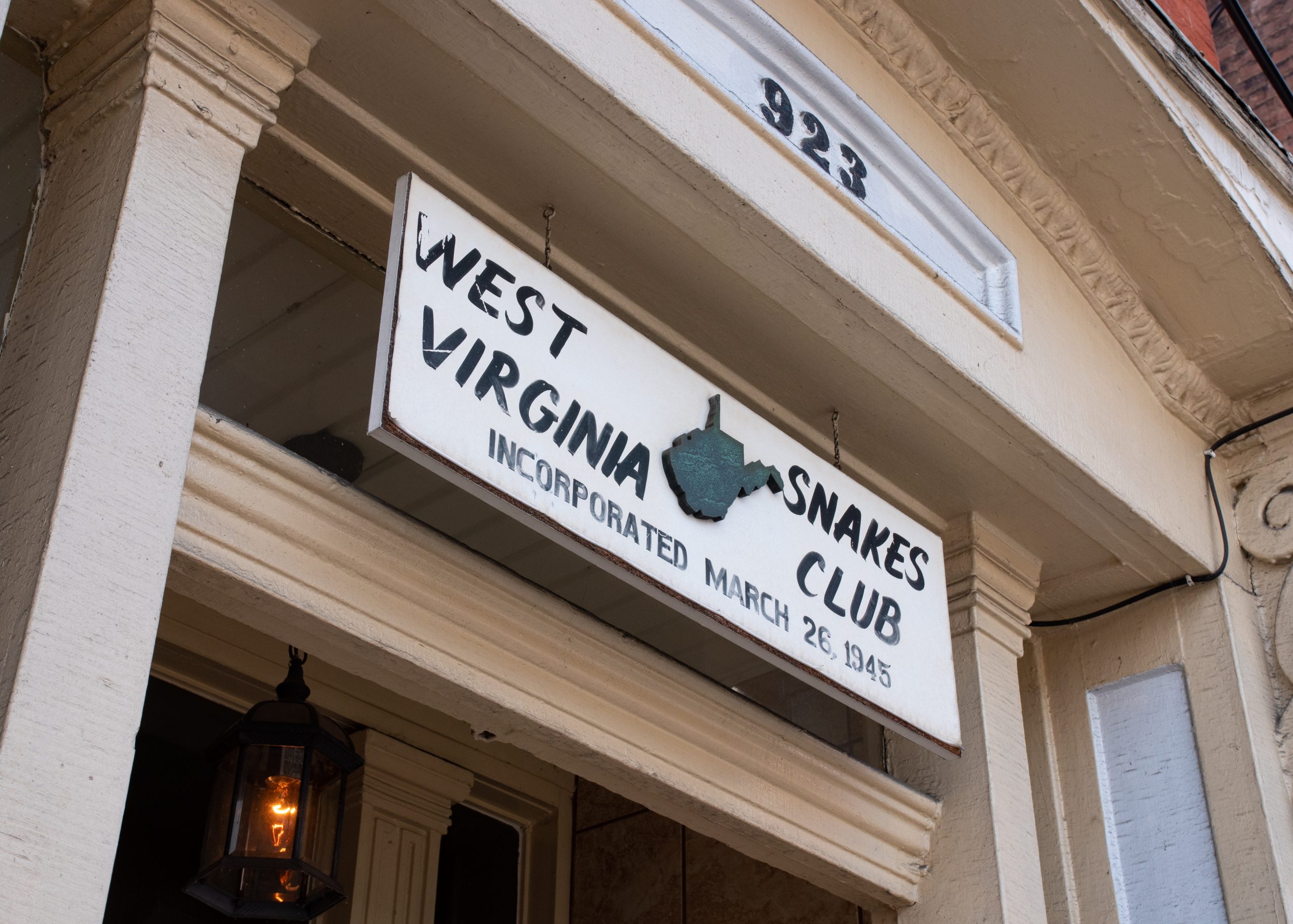
THE BUILDING’S DEEP HISTORIC ROOTS
According to a framed informational photo that hangs inside the entrance of the club, the building sits on land that was among one of the 112 plots of land claimed and laid out by Wheeling founder and forefather Ebenezer Zane.
The building has been listed on the National Register of Historic Places (NRHP) since 1991, and much information about its history can be found on the NRHP registration form on the National Park Service’s website. According to that information, the house was built by prominent local land developer, Robert C. Woods. Probate records indicate that he inherited the land at 923 Main St. from his late father in 1831. The house was constructed sometime between that year and 1845, when the oldest known county tax records show the younger Woods as the owner of the home at this address, which was appraised at the grand sum of $3,000. This means that the house was erected prior to the 1849 completion of the Suspension Bridge just south of it, which makes it one of the few buildings in Wheeling that pre-dates the historic span.
In addition to developing this and other plots of Wheeling’s earliest real estate, Woods was also a surveyor who will go down in history as the person who established the Ohio/Marshall County line in 1835. It is not known if he personally lived in the residence; according to the NRHP documentation, no record of him actually living there exists.
Woods sold the home to its first known resident, Jacob S. Rhodes, in 1848. At about that same time, Rhodes established a dry goods store at the corner of Main Street where the Suspension Bridge would soon cross the river. The prime location of J.S. Rhodes & Co. at the entrance to the “Gateway to the West” made it one of the most successful such businesses in town until the turn of the century. Rhodes helped to finance the construction of other major commercial buildings in Wheeling, was an organizer of the First National Bank of Wheeling and also served on the founding board of Greenwood Cemetery.
The house changed hands several times through the years. Rumors swirl that it was home to abolitionists during the Civil War who were part of the Underground Railroad network, but Weelunk found no documentation to support or refute that claim.
THE CURRENT CENTURY
The Snakes Club was organized on March 26, 1945, by Wheeling residents Robert J. and Harry W. Browning and several of their friends. The private fraternal men’s organization was formed as a “non-political club to promote sociability and goodwill for its members, not for profit; to buy food and drinks for the use of its members, but not to sell for profit,” according to the incorporation documents kept onsite at the club. At the time of its inception, members of the club were required to be male citizens of the United States, 21 years of age or older and were asked to pay annual dues of $6.
FLORENCE EVANS REMEMBERS
Florence Evans grew up in North Wheeling in the 1940s. She tells Weelunk that the Snakes Club has always been part of her life, despite the fact that she was unable to become a member herself because of her gender.
“My best friend growing up was Joann Long. Her dad was a member, so I always heard talk about the Snakes Club when I was young,” Evans recalls.
It turns out that Evans also remembers a good bit about the club’s history, more so even than older members of the club do. She recalls that before World War II, an early iteration of the club — called the Washington Club — existed in North Wheeling.
“When most of the members went off to war, that club closed down,” Evans says. “When the men all came back, they reopened it and called it the West Virginia Snakes Club. There’s probably no one alive now who remembers why it was named that.” There is some speculation that it may be an inside joke among the original members or that the name may have had some war-related significance to club founders. But no one seems to remember for certain.
Evans relates that the Washington Club met in a building at 8th and Market streets, near where the Seeing Hand Association is located. When the Snakes Club was formed, the founders moved to a space above the old Dinner Bell diner. As the membership grew, they moved around town a bit, at one point utilizing space in the basement of the former Pennsylvania Railroad station building. That building would later become warehouse space for the now-closed Braunlich’s Appliances.
At some point in the mid-to-late 1950s, Evans says, the club purchased the residence at 923 Main St. and began to refurbish it to suit their needs. She remembers that the building had been apartments just prior to its purchase by the club.
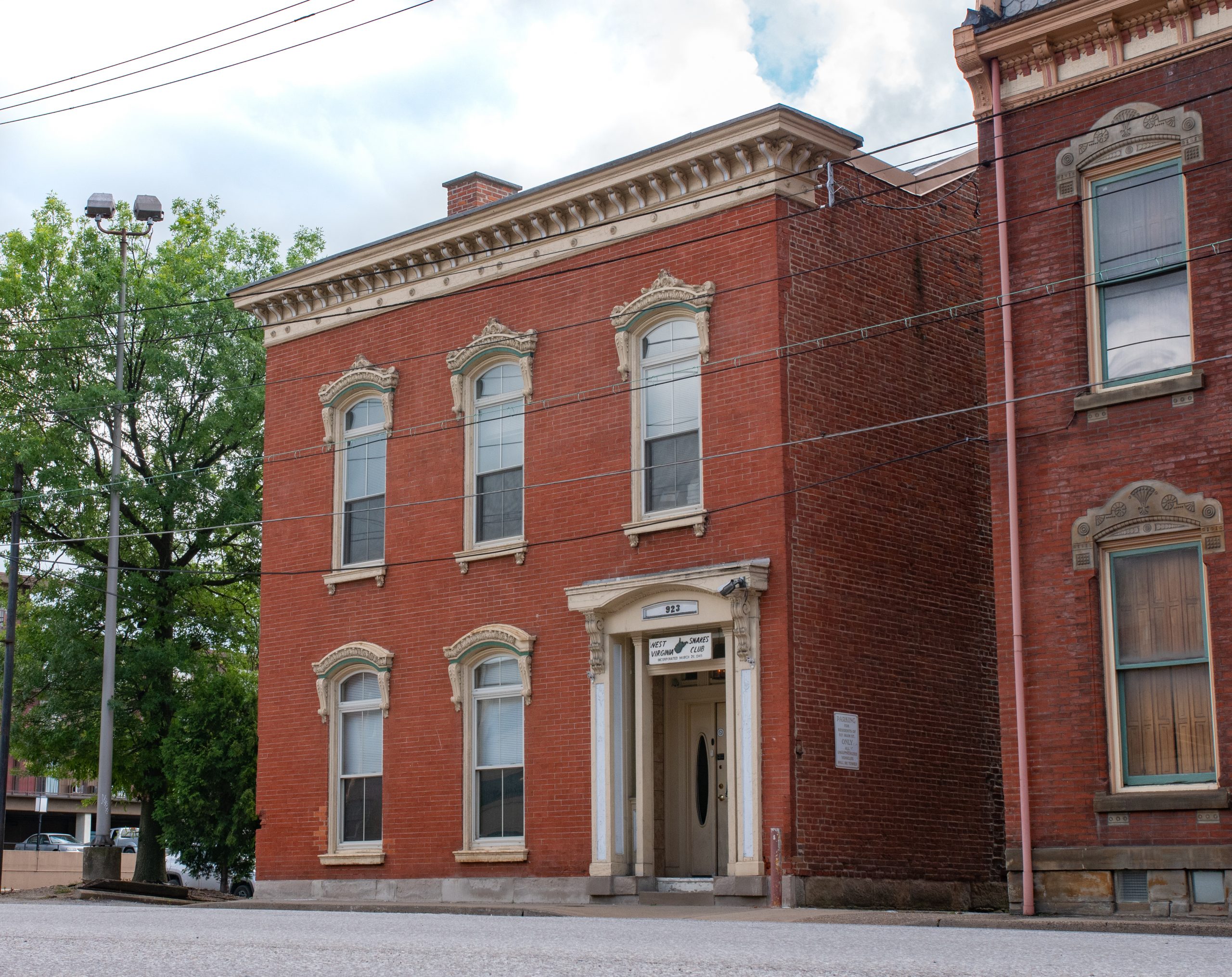
By that time, Evans had married and started her family. Her late husband Chuck was one of the earliest members of the Snakes Club, joining in 1950. Wives and girlfriends were permitted to visit the club only on Saturday evenings in those days.
“There were a lot of social activities held at the club back then,” Evans remembers fondly. “There was a big Christmas dinner every year, which was mostly for the single or widowed men who didn’t have anywhere to go for the holiday. There was also a big family picnic with food and music every summer; everyone brought their kids, ” she shares.
And then there was the dismal turtle soup incident.
“The guys raised a turtle at the club. The other wives and I would visit the turtle and feed it potato chips sometimes,” Evans says. Time passed and the turtle grew. One Saturday, Evans and her friends looked for the turtle in its usual spot and couldn’t find it.
“Where’s the turtle?” they asked the men. “In the kitchen,” came the response. When the wives went to the kitchen, they found the poor turtle, all right — sadly, it had been turned into turtle soup. The wives were quite upset about this, and Evans does not recall turtle soup being on the menu from that point forward.
Some people are under the impression that the Snakes Club is a private club for police officers and firefighters. Evans says that although many first responders have been members through the years, the club was never exclusively for them as far as she remembers.
THE CLUB TODAY — OFTEN A FAMILY AFFAIR
Evans’ son Mark and two of her grandsons have followed in her husband’s footsteps to become members of the Snakes Club. Their family is just one of several in which more than one generation holds membership.
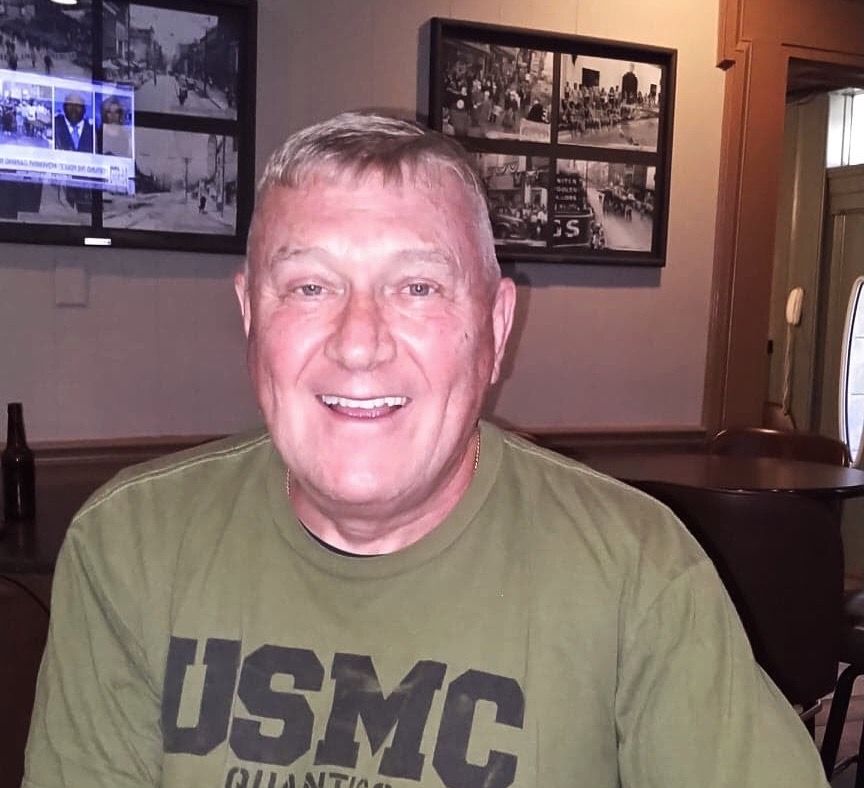
Art Sargent is the patriarch of another such family. He, his son Scott and grandson Doug are all current members. “I like the club because it’s quiet and comfortable, and there’s never any trouble,” the eldest Sargent shares. He was hired by the club as a bartender in the early 1980s and became a member in 1981. He’s been going there nearly every week ever since.
Members say they enjoy the laid-back atmosphere and camaraderie they share at 923 Main St.
Today, the club is still private and the rules of membership remain the same, but other aspects of the Snakes Club have changed. Annual dues have more than tripled in price and are now $20. Women whose significant others are members are now welcome to enjoy a cold beer any night of the week. No profanity is tolerated at the bar. The annual summer family picnic and Christmas party continue to be popular events. As in years past, prospective members must be proposed and sponsored by a current member to be considered for membership.
In recent years, Snakes Club members have renovated and upgraded the space while continuing to respect the historical significance of the structure. The club is now entering its seventh decade at 923 Main and expects to be a Wheeling fixture at that address for generations to come.
• A lifelong Wheeling resident, Ellen Brafford McCroskey is a proud graduate of Wheeling Park High School and the former Wheeling Jesuit College. By day, she works for an international law firm; by night, (and often on her lunch breaks and weekends) she enjoys moonlighting as a part-time writer. Please note that the views expressed in her writing are solely her own and do not necessarily reflect those of anyone else, including her full-time employer. Through her writing, Ellen aims to enlighten others on causes close to her heart, particularly addiction, recovery and equal rights. She and her husband Doug reside in Warwood with their clowder of rescued cats, each of whom is a direct consequence of his job as the Ohio County Dog Warden. Their family includes four adult children, their spouses and several grandkids.


